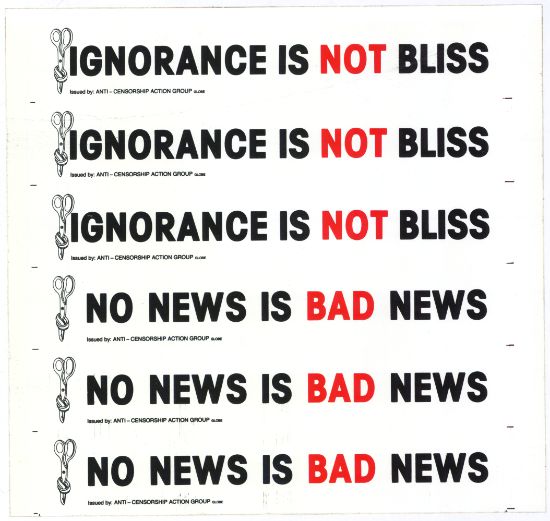|
19 January 2011
Worrying developments in the European Union
On 19 January 2011 the Freedom of Information Programme (FOIP) joined the call, made by several international organisations to members of the European Parliament, asking that they not support amendments proposed to restrict access to European Parliament, Council and Commission documents. As one of the most powerful political forces in the world, the European Union (EU) should be at the forefront of advancing human rights through the protection and advancement of the citizen's right to access information.
The European Union, through Regulation 1049/2001, has previously expressly committed itself to advancing public access to the European Parliament, Council and Commission documents. Within this document they acknowledge that - in order to create an ever closer union among the European people - decisions must be made openly and as closely as possible to the citizen. This confirms the aphorism once stated by David Weinberger that "[t]here is an inverse relationship between control and trust".

In an open letter addressed to Members, FOIP and its partners have called for an amendment to the current proposal under Regulation (EC) 1049/2001 that will:
- Align it with the Lisbon treaty through broadening its current scope to all EU offices, bodies and agencies;
- Keep the current existing definition of ‘document' which covers all documents (and in all formats such as databases) and not merely those formally transmitted or registered;
- Align it with the Court of Justice of the EU decision which ruled that legal advice from legal services should be publicly accessible and that no member state has the right to veto the disclosure of documents; and
- Maintain the current deadline of 15 days to reply to confirmatory applications instead of extending it.
The proposal to amend current rules to restrict access to information is an unfortunate pattern being replicated currently throughout the world in relation to freedom of information laws. In South Africa too, the recent attempts of government to rush through the Protection of Information Bill - in spite of its poor drafting potentially having a devastating effect on the release of information and threatening the imprisonment of journalists, whistleblowers and information advocates - has been met with significant local and international condemnation. The Freedom of Information Programme has been significantly involved in resisting this Bill through its seat on the national steering committee of the Right2Know campaign.
To read more on the Access Info's other attempts to advance an open and transparent European union you can go to their website here.
|







